I learned this by way of one of my friends, Kim, who recently started a new job here in HK after relocating from Chicago. For the past several weeks, we've been getting updates from Kim on her new work environment. After one of Kim's co-workers "talked" to her about her problem, Kim initially thought, because of language barriers, that it was just bad to wear white pants, but nope, it was her leg shaking that was causing offense. Apparently, leg shaking can be taken as a sign that you are showing off wealth because as you shake your leg, coins might be in your pocket and make noise. While Kim had no coins in her pockets, the unrealized gesture still had hidden cultural meaning for her coworker. Luckily, this was all cleared up so Kim's white capris are in the free and clear.
I don't know when this assoication began in Hong Kong, but it's not one that surprises me. HK, like most other countries that I've visited around the world, seems to be much more heavily reliant upon the coin rather than the paper bill. Penny, nickel, dime, and quarter make up the orchestrated jingle-jangle of the U.S. pocket (most commonly) while here in HK, we have $10, $5, $2, $1, 50c, 20c, and 10c coins with paper notes for $1,000, $500, $100, $50, $20, $10. All of these denominations are common and have been in my pocket since arriving.
So here they are in all their splendor - a sampling of HK's currency.
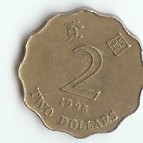
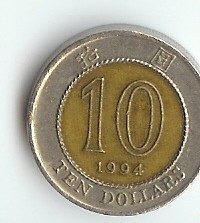
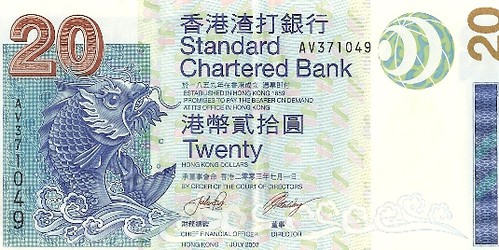
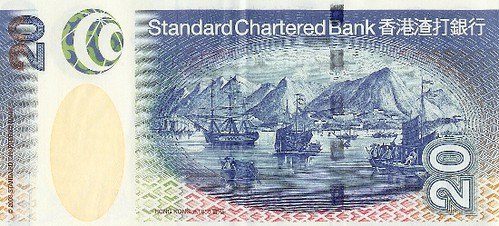
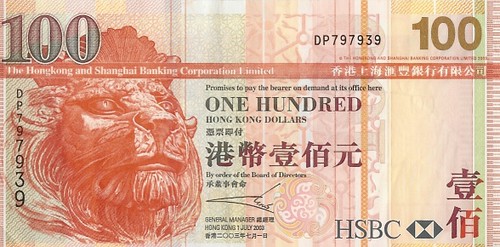
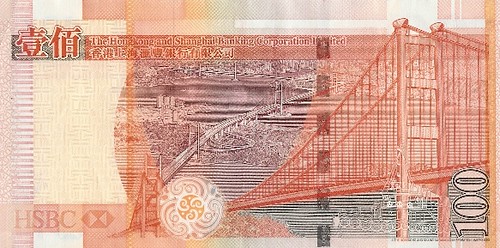
A couple of interesting items of note:
- US$1 = ~HK$7.8
- Credit cards work here just like in the U.S., and in fact, credit cards are the easiest means of transactions internationally (when accepted). There are no special charges, like when converting money, and can be paid easily through U.S. banks.
- A cash-less society seems closer here than anywhere I have been. The Octopus, HK's electronic transportation pass, is accepted at almost all convenience type settings around the city.
- HK and China still maintain separate currencies.
No comments:
Post a Comment